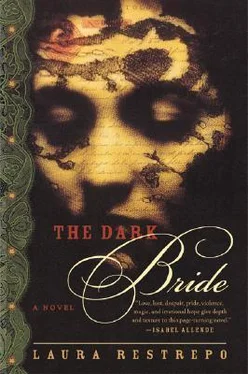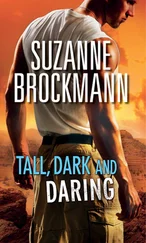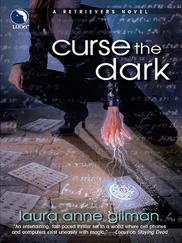“Do you mean that she had a conclusive way of being there?”
“Exactly. How did you know?”
“I have heard that before.”
“I remember a Colombian song that goes, more or less, I love my woman because she is pure reality. It must have been written about her.”
Frank Brasco tells me that from the first day they met, Sayonara devoted herself to asking about snow and kept insisting on the subject even at the moment when they were saying good-bye forever.
“It was her obsession,” he tells me. “And I still don’t understand why I didn’t bring her here so she could experience winter, which made her so anxious. I also wonder why snow interested her so much, why it tugged at her, to the point of a mania.”
As he shovels away the dense layer of snow that obstructs the entrance to his cabin, engineer Brasco struggles to bring to mind the memory of the thousand tones of green of the verdant Colombian landscape, from the most fiery to those streaked with black, the fresh sprouts of bamboo shoots, the nocturnal leaves of the yarumo plant bathed in moonlight, the chatter of the parakeets after a downpour, the piquant aroma of the high pastures, the smell of lemons that refreshes the hours of suffocating heat in Tora.
“And the slices of green mango with salt that they sell on the corners,” he adds. “How I would love to eat green mango with salt again!”
“Sayonara wasn’t the only delirious one,” I say. “In the middle of this cold air and sunk to the knees in snow, you’re talking about green mango with salt…”
“I asked her: ‘Why do you like the snow so much, Sayo, when you’ve never seen it?’ ”
“Yes, I have seen it, in my dreams. And in pictures. Look, míster Brasco,” Sayonara said to him, handing him one of the postcards sent by Sacramento, the reproduction of a painting by Alfred Sisley that showed the sweet way in which winter covered a village street.
“Isn’t it true that this is your pueblo, míster ?” Frank Brasco tells me she asked him.
“No, this is a French village. Mine is in the far north of the United States, near the border with…”
“Okay, okay, don’t explain to me where it is, just tell me if it is just like this one in the postcard.”
“Only a little.”
“I say it must be just the same, because all towns look the same when they are covered with snow. Do you know, míster, why it is that snow never comes to Tora?” she asked, and immediately started to talk about something else, without waiting for an answer.
The next day, at exactly six in the morning, when Brasco, still half awake and suffocated by a buzzing dizziness that had tormented him through the night, came out of his room and went to the bathroom to refresh himself by submerging his head in clear water, he saw her sitting there on a bench, already bathed and dressed, impatient, waiting for him.
“Is it true, míster ,” she said suddenly, without saying good morning first, “that sometimes the snow falls blue and clean like the sky, and other times gray and soiled like dirt?”
“It’s almost always white, but there are so many shades that the Eskimos who live in the frozen lands of Alaska have a hundred different words for the color white. To live in Colombia you must know a thousand different words for green…”
“Green, green, you always talk about green and what I want to talk about is white. And is it true, yes or no, that when a lot of snow falls you shouldn’t wear silk stockings because they get stuck to your legs and if you try to take them off you’ll tear off your skin and everything? Is it true?”
“Where did you hear that…?”
“Somebody was going around saying it.”
“You must be crazy. In the middle of this dizzying heat you come to me talking about snow…”
“My friend Claire doesn’t like it either.”
“Doesn’t like what?”
“Talking about snow. I asked her and she avoided the subject because she says it made her sad to remember it. Is it true that snow is sad, míster Brasco?”
“No, Sayo, it’s not sad. It’s white, and beautiful, and happy, and I do like to talk about it. It’s just that it makes me laugh to see how anxious it makes you…”
And if I tell her to come with me to Vermont, wondered Frank Brasco, more as a pleasurable and irresponsible musing than as a real possibility. And if I tell her not to be afraid because she will like my village even though it’s not just like the postcard and because her silk stockings won’t adhere to her skin, he stopped to consider, and that the snow extends blue-white and radiant there because there’s no one to walk in it.
“But I didn’t tell her,” he confesses to me, “because deep down I didn’t have the slightest intention of taking on such a commitment and because it was evident that she wasn’t there to ramble on about fate but to inquire about certain very concrete aspects of the snow problem that she was still unsure about.”
So Sayonara sat there looking up, with her eyes lost in a sky reverberating with light and heat, and asked:
“What flies higher, míster, snow or an airplane?”
“Snow doesn’t fly, it falls.”
“Airplanes also fall, sometimes.”
“Okay, okay. Let’s say that airplanes fly higher, then, because they can go over the clouds. Snow falls from the clouds.”
“Then snow is pieces of cloud? And when snow falls, does it stay there forever?”
“No, because it melts, like ice.”
“It falls onto animals, and the animals turn white. It falls on the trees, and the trees turn white… oh, how I would like all the trees and roofs in Tora to turn white! It would be so pretty. And I would have a good wool coat to protect me from the cold,” she assured him, and her dark body, embraced by the sun, shivered beneath her light cotton sleeveless dress. “Do you wear a coat, míster Brasco, back where you’re from?”
“A coat lined with fur and high boots and gloves and a wool cap.”
“That’s what I would like! A red wool hat… Olguita, she knows how to knit, she could make me one… if snow ever falls in Tora, of course, because if not then, why…? And is it true, míster, that snow burns?”
“It could be, yes. It’s so cold that it burns.”
“So cold that it burns!” she laughed, hitting her thighs with the palms of her hands. “The things this gringo says! It’s a good thing, snow, and Claire wasn’t right when she said it was sad. How I would like to have a little snow, even just a handful!”
“Some day, some day,” he lied, as he thought, And if I tell her to come with me to Vermont and to bring Todos los Santos with her? And Olguita too so she could knit them red wool caps. It would be a folly the size of a mountain, he realized, so he didn’t say anything and he felt falling upon his shoulders, soft and wilted like snowflakes, the words of love that he never said.
“Don’t be a liar, míster !” Sayonara protested, as if she were reading his thoughts. “How am I going to feel snow if it’s never going to snow in Tora? At the very most we might get hail, and that on Judgment Day, but snow, what you call snow, it only falls over there, where the big world is.”
The big world, she had said, and those words were accompanied by a wide, circular gesture of her hand and arm, as if indicating a very long journey, impossible, unthinkable.
“But Tora is also part of the big world,” he said, trying to cheer her up.
“Don’t be ridiculous. The big world is faaaaar away, there, way away, where only airplanes go.”
“What do you want to know about the big world? Ask me anything, I’ll answer you.”
“No lies?”
Читать дальше












